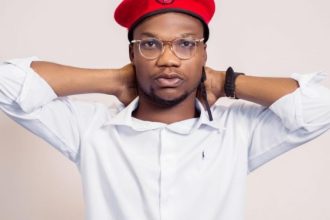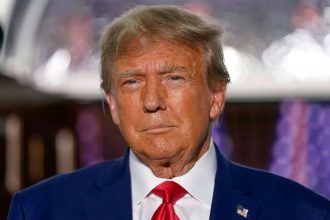In a move that seem like a significant blow to Hezbollah, Lebanese President Joseph Aoun has appointed Nawaf Salam, the head of the International Court of Justice, as prime minister after the majority of lawmakers nominated him on Monday.
Salam’s selection highlighted a substantial shift in the power dynamics among Lebanon’s sectarian groups since the Iran-backed Shi’ite Muslim organization Hezbollah was battered in a conflict with Israel last year, and its Syrian ally Bashar al-Assad was overthrown. The presidency announced that Salam, currently abroad and expected to return on Tuesday, had garnered the support of 84 out of 128 parliamentarians, prompting Aoun to summon him to form the government.
Salam received backing from Christian and Druze factions, as well as prominent Sunni Muslim MPs, including both Hezbollah allies and opponents who have long demanded that the group relinquish its powerful arsenal, arguing it has weakened the state. However, lawmakers from Hezbollah and its Shi’ite ally, the Amal Movement, which hold all the seats allocated for Shi’ites in parliament, did not nominate anyone, signaling their current intention not to participate in Salam’s government and raising the possibility of a sectarian divide if they remain outside the cabinet.
Senior Hezbollah lawmaker Mohammed Raad, whose Iran-backed group had preferred incumbent Najib Mikati to remain in the position, stated that Hezbollah’s opponents were working towards fragmentation and exclusion. He mentioned that the group had “extended its hand” by electing Joseph Aoun as president last week, only to find the “hand cut.” “Any government at odds with coexistence has no legitimacy whatsoever,” Raad said. He added that the group would act calmly and wisely “out of concern for the national interest.”
Last week’s election of army commander General Aoun, who has the backing of the United States and Saudi Arabia, was another indication of changes in the political landscape, where Hezbollah had long held significant influence. It marked a resurgence of Saudi influence in a country where it had been overshadowed by Iran and Hezbollah for years.
Aoun’s election and the appointment of a new prime minister mark significant steps towards revitalizing Lebanese government institutions, which have been in a state of paralysis for over two years, leaving the country without a head of state or a fully functional cabinet.
Faisal Karami, a Sunni lawmaker aligned with the group, stated that he had nominated Salam, citing demands for “change and renewal” and assurances of Arab and international support for Lebanon. Christian lawmaker Gebran Bassil described Salam as the “face of reform,” adding, “Hope is in change.”
The new administration faces enormous challenges, including rebuilding areas devastated by Israeli airstrikes during the conflict with Hezbollah and implementing long-delayed reforms to revive the economy and address the root causes of Lebanon’s financial system collapse in 2019. Aoun expressed his hope for a swift and smooth government formation, referencing pledges of foreign support by saying, “We have great opportunities abroad.”
According to Lebanon’s sectarian power-sharing system, the prime minister must be a Sunni Muslim, the presidency is reserved for a Maronite Christian, and the speaker of parliament must be a Shi’ite Muslim. Hezbollah lawmakers arrived late to their meeting with Aoun, delaying their arrival as they observed the growing momentum behind Salam, a Hezbollah source revealed. The source added that Hezbollah believed a political understanding had been reached regarding Mikati’s election before the group agreed to elect Aoun last week.
Salam assumed the presidency of the ICJ, based in The Hague, as it held its first hearing in 2024 on a case filed by South Africa accusing Israel of genocide in the Gaza Strip, which Israel has dismissed as unfounded. In his previous role as commander of the U.S.-backed army, Aoun played a crucial role in implementing a U.S.-brokered ceasefire agreement between Israel and Hezbollah. The terms of the agreement require the Lebanese army to deploy in southern Lebanon as Israeli troops and Hezbollah withdraw their forces.















